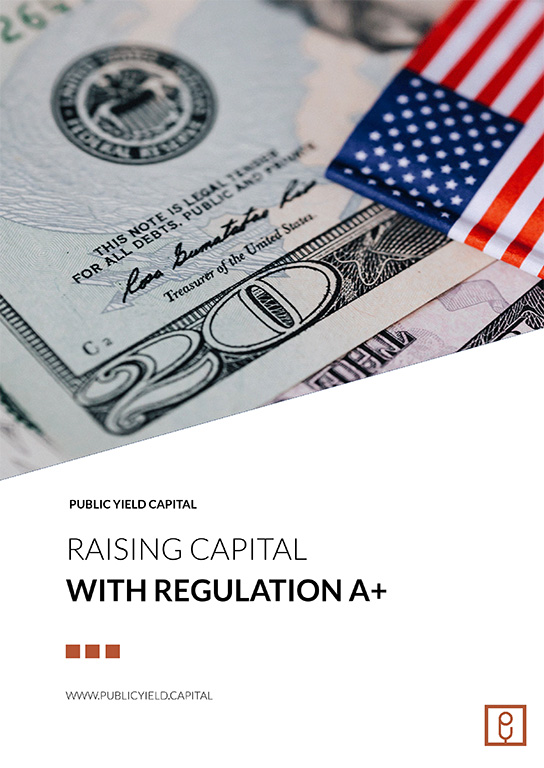
In the realm of equity crowdfunding, the journey from ideation to raising capital can be an exhilarating one. Startups and companies of all sizes turn to various SEC regulations to fuel their growth, with options such as Regulation A+, Regulation CF, Regulation D, and Regulation S offering distinct pathways to fundraising success. However, at every step of this journey, compliance plays a pivotal role in ensuring that your campaign not only succeeds but also stands the test of time. In this comprehensive guide, we will explore why compliance is the cornerstone of your equity crowdfunding campaign and why it is a multi-faceted process that evolves as your campaign progresses.
1. The Foundation of Compliance: Adhering to SEC Regulations
Before you even think about launching your equity crowdfunding campaign, you must navigate the intricate landscape of SEC regulations. Each regulation comes with its unique set of requirements, limitations, and guidelines, which means that understanding the one that aligns with your fundraising goals is paramount.
Regulation A+ Transparency and Investor Protection
Compliance with SEC regulations enhances transparency and investor protection. The regulations are designed to provide investors with the necessary information to make informed investment decisions. By being transparent about your company’s financials, risks, and business operations, you establish trust with investors and foster a sense of security. Compliance with disclosure requirements not only protects investors but also demonstrates your commitment to ethical business practices.
Building a Compliance Framework with Investor Outreach Desk
To ensure comprehensive compliance, consider building an internal compliance framework that includes policies, procedures, and responsible individuals or teams. Designate a compliance officer or team to oversee adherence to regulations and conduct regular audits to identify and rectify any compliance gaps.
Regular Compliance Training
Invest in regular compliance training for your team to keep them updated on the latest regulatory changes and best practices. Ensure that all employees involved in the crowdfunding campaign understand their roles and responsibilities in maintaining compliance.
2. Trust and Credibility: The Benefits of Compliance in Investor Relations
Professionalism and Ethical Standards
Compliance demonstrates your commitment to professionalism and ethical business practices. By adhering to regulatory requirements, you convey a sense of integrity and responsibility, which are highly valued by investors. Investors are more likely to trust and support a company that prioritizes compliance, as it reflects a commitment to conducting business in a transparent and responsible manner.
Mitigating Risks and Protecting Investors
Compliance helps mitigate risks for both your company and investors. By following the necessary guidelines and protocols, you minimize the chances of fraud, misrepresentation, or non-compliance issues that could harm investors. Compliance measures such as proper due diligence, transparent financial reporting, and adherence to anti-money laundering (AML) regulations provide a layer of protection for investors, fostering a safe investment environment.
Legal and Financial Consequences of Non-compliance
Highlight the potential legal and financial consequences of non-compliance. These consequences may include fines, legal actions, damage to your company’s reputation, and the inability to access capital markets in the future. Emphasize that compliance is not just a regulatory requirement but also a strategic move to protect the company’s interests.
3. Securing Long-Term Viability: Compliance and Investor Relations
Post-Fundraising Obligations
Compliance obligations extend beyond the fundraising round. After successfully raising capital, you are responsible for meeting ongoing reporting requirements, providing timely updates to investors, and maintaining transparent communications. By fulfilling these obligations, you strengthen your investor relations and maintain a positive rapport with your shareholders.
Investor Confidence and Future Growth
Compliance instills confidence in investors and paves the way for future growth opportunities. When potential investors see a track record of compliance, they are more likely to consider investing in your company. Compliance demonstrates your commitment to sound governance, regulatory adherence, and ethical practices, all of which contribute to a positive investor perception and attract potential investors for future funding rounds.
Maintaining Ongoing Investor Relations
To maintain strong investor relations, consider establishing an Investor Relations (IR) department or team dedicated to addressing investor inquiries, providing updates, and managing communication. Regularly engage with investors through newsletters, webinars, and annual meetings to keep them informed and engaged.
Building a Loyal Investor Base
Highlight how compliance contributes to building a loyal investor base. Investors who experience transparent and compliant dealings are more likely to become long-term supporters of your company. They may participate in subsequent funding rounds, advocate for your brand, and refer other potential investors.
4. Compliance Challenges and Solutions
Overcoming Compliance Challenges
Acknowledge that compliance can be complex and challenging, especially for startups and smaller companies with limited resources. Discuss common compliance challenges such as regulatory changes, data security, and reporting requirements.
Solution-Driven Approaches
Provide solution-driven approaches to address compliance challenges. For instance, consider outsourcing compliance management to experienced firms or leveraging compliance software to streamline processes. Emphasize the importance of seeking expert guidance when navigating complex compliance issues.
The Role of Legal Counsel
Highlight the role of legal counsel in ensuring compliance. Encourage companies to work closely with legal advisors who specialize in securities regulations to navigate the complexities of compliance.
Leveraging Technology
Discuss how technology can facilitate compliance efforts. Mention the use of software for document management, reporting, and data security to ensure that compliance is efficient and up to date.
By prioritizing compliance and maintaining strong investor relations, you establish a solid foundation for the long-term viability and growth of your company. Compliance is an essential component of a successful equity crowdfunding campaign. It not only protects your company from legal and financial risks but also enhances transparency, investor protection, and future growth opportunities. As a C-suite decision-maker, it’s crucial to prioritize compliance in your crowdfunding budget and strategy to maximize the potential of your equity crowdfunding campaign.
In summary, compliance is not just a regulatory necessity; it’s a strategic imperative that safeguards your company’s reputation, fosters investor trust, and opens doors to future funding opportunities. Ensure that compliance remains at the forefront of your equity crowdfunding journey, and you’ll be well-positioned for success.



